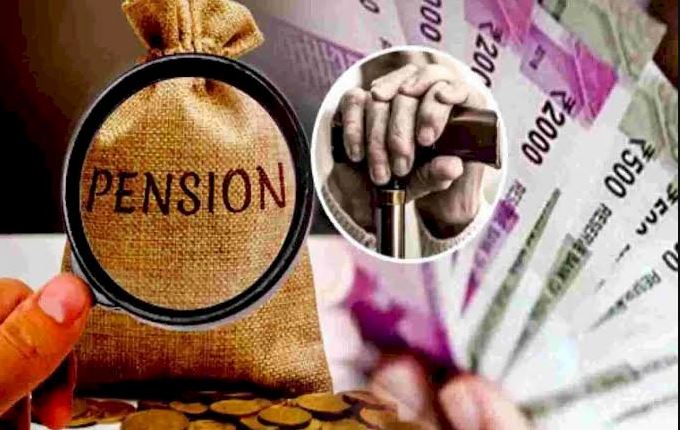
Rule 50 of the Central Civil Services (Pension) Rules, 2021, along with payment of family pension will be mandatory on the death of a Government servant/pensioner.
Big news for employees. In fact, a new order has been issued by the Department of Pension (DoPPW). Under which amendments were made in the case of 6th-7th pay commission government employee pensioner’s family pension under amendment in Civil Services Pension Rules 2021. Grant of family pension to the unmarried or divorced daughter of Government servant pensioners shall be paid under this rule.
The Department of Pension has notified the Central Civil Services (Pension) Rules, 2021 in supersession of the Central Civil Services (Pension) Rules, 1972. Rule 50 of the Central Civil Services (Pension) Rules, 2021, along with payment of family pension will be mandatory on the death of a Government servant/pensioner. The grant of family pension to the unmarried or widowed or divorced daughter of the deceased Government servant/pensioner under the Central Civil Services (Pension) Rules, 2021 shall be payable as follows.
As per Rule 50(9) of the Central Civil Services (Pension) Rules, 2021, an unmarried or widowed or divorced daughter of a deceased Government servant/pensioner, who is not earning her livelihood, is eligible for family pension. For life of twenty-five years or until she is married or remarried or until she starts earning her livelihood, whichever is earlier, subject to the following conditions:-
- The family pension shall be initially payable to children below the age of twenty five years or a disabled child eligible to receive family pension as per rule 50.
Unmarried or widowed or divorced daughter was dependent on her parents or parents when she or they were alive; - Where a deceased Government servant or pensioner leaves behind more than one unmarried or widowed or divorced daughter of more than twenty five years in the order of their birth, the family pension shall be payable to such daughter earlier, who fulfills the eligibility conditions for grant of family pension. fulfills.
- The eldest daughter shall be entitled to family pension until she is married or remarried or has started earning her livelihood, whichever is earlier, and the younger of the daughters shall be entitled to the latter’s eldest. After that the family will be eligible for pension. Married or remarried or has started earning his livelihood;
- In the case of a widowed daughter, the death of her husband and in the case of a divorced daughter, the divorce has taken place during the lifetime of a Government servant or pensioner or her spouse. However, family pension would be payable to the divorced daughter from the date of divorce if the divorce proceedings were filed in a competent court during the lifetime of the Government servant or the pensioner or his spouse but the divorce took place after his death.
- In such cases, if as a result of the death of the Government servant or pensioner and his/her spouse, the family pension becomes payable to any other eligible member of the family before the date of divorce of the daughter, the family pension to such divorced daughter shall be extended to the family pension as aforesaid. Will not start before the member ceases to be eligible for family pension or dies.
All Ministries/Departments are requested to bring to the notice of the Ministry the above provisions regarding grant of family pension under the Central Civil Services (Pension) Rules, 202] to the unmarried or widowed or divorced daughter of a deceased Government servant/pensioner. / The personnel related to pension related benefits in the Department and its attached / subordinate offices should be brought under the rules for strict implementation.





